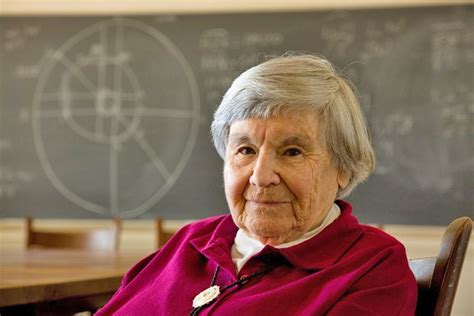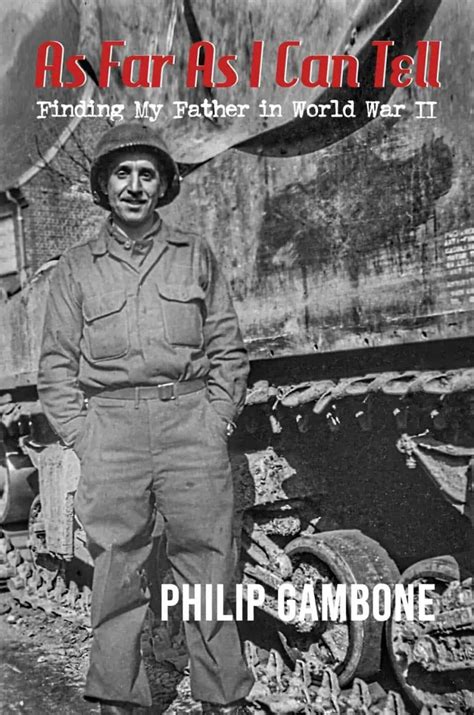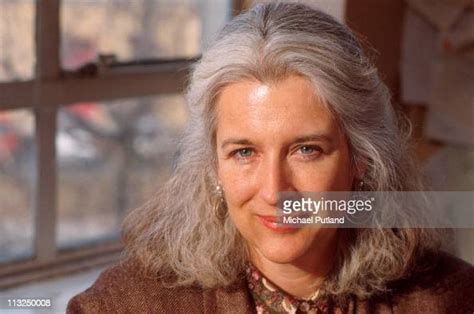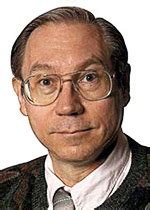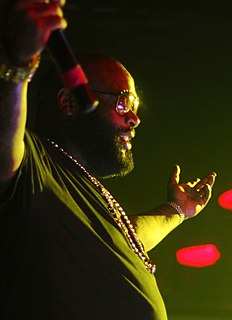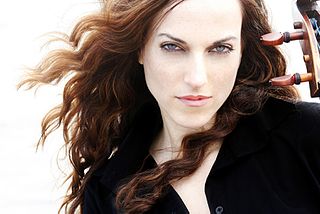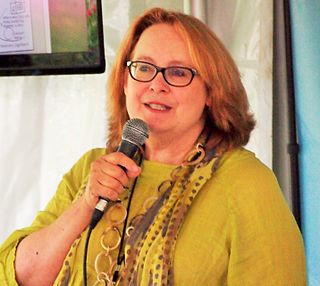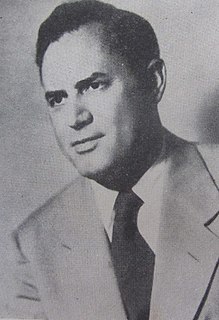Top 241 Literate Quotes & Sayings - Page 4
Explore popular Literate quotes.
Last updated on November 27, 2024.
I want it to be said that the Bush administration was a results-oriented administration, because I believe the results of focusing our attention and energy on teaching children to read and having an education system that's responsive to the child and to the parents, as opposed to mired in a system that refuses to change, will make America what we want it to be - a more literate country and a hopefuller country.
Just in higher education alone, more people go to college now, by enormous amounts, than went to college in the '50's and '60's. So that represents a whole new literate public that's a consumer of literature, of news, of print, of, you know, opinion. And that's a bigger audience and much more diverse audience than it used to be.
You will be educated, which means that you will be interested where others are bored, that you will notice unities where others experience randomness, and that you will intend meanings where others are just spouting words. For exactly that is supposed to be the result of becoming literate: The world becomes a thick texture of significance that you know how to “access.
Sincere thought, real free thought, ready, in the name of superhuman authority or of humble common sense, to question the basis of what is officially taught and generally accepted, is less and less likely to thrive. It is, we repeat, by far easier to enslave a literate people than an illiterate one, strange as this may seem at first sight. And the enslavement is more likely to be lasting.
As I started reading about it, I saw that at the beginning of the 19th century, outside of New England - which was an unusually literate place - practically no one could read or write. And even in New England, the overall rate was only about 60 percent. That still means four out of 10 people couldn't put their name to a will.
Every child needs to become literate in one or more languages, and every child should become comfortable in the major scholarly disciplines - historical, scientific, mathematical, and artistic-humanistic thinking. Beyond that, I am not in favour of a uniform system. I think there should be some choices.
In my late 20s, I realized that I had a very clear social conscience and strong opinions about things like diversity, equality, and education, and while I tried to become more politically literate, I just couldn't catch on. It felt like I had walked into a movie that had already started, and no one would explain what had happened.
For more than thirty years, Joe Eck and Wayne Winterrowd have been gardening with extraordinary, indeed legendary, results. Part memoir, part omnium-gatherum of horticultural wisdom and practical advice, Our Life in Gardens is at once literate, learned, sensible, and, often, sheer luscious poetry. There are delights to be sampled on every page. From a cultivated life, they have brought forth, once again, a cultivated book.
Part of what it is to be scientifically-literate is how you think about information that's presented in front of you. I think that's the great challenge. You have people who believe they do know how to think about the information, but don't, and they're in the position of power and legislation. You can't base a society on non-objectively verifiable truth. Otherwise, it's a fantasy land and science is the pathway to those emerging truths that are hard-earned and that some have taken decades, if not centuries, to emerge from experiments all around the world.
Human contacts have been so highly valued in the past only because reading was not a common accomplishment.... The world, you must remember, is only just becoming literate. As reading becomes more and more habitual and widespread, an ever-increasing number of people will discover that books will give them all the pleasures of social life and none of its intolerable tedium.
Positive deviance means doing the right thing for sustainability, despite being surrounded by the wrong institutional structures, the wrong processes and stubbornly uncooperative people. That is what sustainability-literate leadership means today. Surrounded by evidence of rampant unsustainability it is not possible to say 'I did not know'
Language is the crowning achievement of human beings, and that is something Muslims have always known and revered. We are a literate people whose miracle is a Book from an unlettered man, peace and blessings be upon him, who was the most articulate and eloquent human being who ever lived. We honor our Prophet, peace and blessings be upon him, in honoring language that he loved so much and used so well.
Education spurs growth and unlocks potential. After all, a single year of primary education creates a 10 to 20 percent increase in a woman's wages later in life. Education lowers the risk of disease and decreases the likelihood that a child will fall into violence and crime. And a child born to a literate mother is 50 percent more likely to survive past age five. No country has achieved sustained growth without at least 40 percent literacy for its adults.
I think you get most of the most interesting work done in fields where people don't think they're doing art but are merely practicing a craft and working as good craftsmen. Being literate as a writer is good craft, is knowing your job, is knowing how to use your tools properly and not to damage the tools as you use them.
The conventional explanation for Jewish success, of course, is that Jews come from a literate, intellectual culture. They are famously "the people of the book." There is surely something to that. But it wasn't just the children of rabbis who went to law school. It was the children of garment workers. And their critical advantage in climbing the professional ladder wasn't the intellectual rigor you get from studying the Talmud. It was the practical intelligence and savvy you get from watching your father sell aprons on Hester Street.
I suppose we think euphemistically that all writers write because they have something to say that is truthful and honest and pointed and important. And I suppose I subscribe to that, too. But God knows when I look back over thirty years of professional writing, I'm hard-pressed to come up with anything that's important. Some things are literate, some things are interesting, some things are classy, but very damn little is important.
In the south of India, they educated girls. Three things came together in southern India that are unbelievably coincidental. There, the local Maharajas believed in education for everybody. The Syrian Catholic Church built schools for boys and girls. And then the Communist party, which took over politics for a period of time, had very strong social policies that benefited women. As a result, girls got into school. It was the first part of the country where towns could claim to be 100 percent literate. And so there, you're going to have a sex ratio at birth that's normal.
There is one very good reason to learn programming, but it has nothing to do with preparing for high-tech careers or with making sure one is computer literate in order to avoid being cynically manipulated by the computers of the future. The real value of learning to program can only be understood if we look at learning to program as an exercise of the intellect, as a kind of modern-day Latin that we learn to sharpen our minds.
By 1940 the literacy figure for all states stood at 96 percent for whites. Eighty percent for blacks. Notice for all the disadvantages blacks labored under, four of five were still literate. Six decades later, at the end of the 20th century, the National Adult Literacy Survey and the National Assessment of Educational Progress say 40 percent of blacks and 17 percent of whites can't read at all. Put another way, black illiteracy doubled, white illiteracy quadrupled, despite the fact that we spend three or four times as much real money on schooling as we did 60 years ago.
I say to the grownups, if you want to deny evolution and live in your world, that's completely inconsistent with the world we observe, that's fine. But don't make your kids do it. Because we need them. We need scientifically literate voters and taxpayers for the future. We need engineers that can build stuff and solve problems.
...America has enjoyed the doubtful blessing of a single-track mind. We are able to accommodate, at a time, only one national hero; and we demand that that hero shall be uniform and invincible. As a literate people we are preoccupied, neither with the race nor the individual, but with the type. Yesterday, we romanticized the "tough guy;" today, we are romanticizing the underprivileged, tough or tender; tomorrow, we shall begin to romanticize the pure primitive.
The aspirations of democracy are based on the notion of an informed citizenry, capable of making wise decisions. The choices we are asked to make become increasingly complex. They require the longer-term thinking and greater tolerance for ambiguity that science fosters. The new economy is predicated on a continuous pipeline of scientific and technological innovation. It can not exist without workers and consumers who are mathematically and scientifically literate.
If I had been literate, I wouldn't have sold drugs. I just wanted a job. I would have worked at McDonald's. And I would have put the same effort into the fries and mopping the floor that I would have put into drugs. I'm the kind of person that always wants to do a job the best I can. I don't believe in half-doing jobs.
People have always told tales. Long before humanity learned to write and gradually became literate, everybody told tales to everybody else and everybody listened to everybody else's tales. Before long it became clear that some of the still illiterate storytellers told more and better tales than others, that is, they could make more people believe their lies.
From my foster parents, the Deans, I received the love that was ultimately to strengthen me, even when I had forgotten its source. It was my foster mother, a half-Indian, half-German woman, who taught me to read, though she herself was barely literate. I remember her reading to me every day from 'True Romance' magazine.
In ancient times there was no public education, except that of the forum, the theater, and the street, and the general degree of illiteracy was very high. The early men of science were left very much to themselves and such a phrase as "the scientific culture of Alexandria in the third century B.C." does not cover any reality. In a sense, this is still true today; the real pioneers are so far ahead of the crowd (even a very literate crowd) that they remain almost alone.
Comic books themselves are getting more literate. And there are people who are screenwriters and television writers and novelists who are writing for the comics, for some reason, they love doing it and some of the art work in the comics, I mean it rivals anything you'll see hanging on the walls of museums, they're illustrations more than drawings and all the people are discovering this and they're turning on to it.
Nevertheless, hateful as saying 'No' always is to an imaginative person, and certain as the offence may be that it will cause to individuals whose own work does not require isolated effort, the writer who is engaged on a book must learn to say it. He must say it consistently to all interrupters; to the numerous callers and correspondents who want him to speak, open bazaars, see them for 'only' ten minutes, attend literary parties, put people up, or read, correct and find publishers for semi-literate manuscripts by his personal friends.
I think the biggest misconception about mathematics is that everybody has to learn it. That seems to be a complete mistake. All the time worrying about pushing the children and getting them to be mathematically literate and all that stuff. It's terribly hard on the kids. It's also hard on the teachers. And I think it's totally useless. To me, mathematics is like playing the violin. Some people can do it - others can't. If you don't have it, then there's no point in pretending.
Human beings can be redeemed. Empires cannot. Our refusal to face the truth about empire, our refusal to defy the multitudinous crimes and atrocities of empire, has brought about the nightmare Malcolm predicted. And as the Digital Age and our post-literate society implant a terrifying historical amnesia, these crimes are erased as swiftly as they are committed.
We do have a big kind of history in literate tradition of Vikings and we have a lot of Viking blood in Scotland, I mean especially up north wherever you go you see a plastic Viking sitting outside a shop and Viking calendars and - because they - you know they came down and stole all our chicks and then some of them didn't quite get back and ended up settling down here. So there's a lot of Viking blood in Scotland.
In the first batch of readers, back in the '60s and '70s, the criminal class was still literate, so I would get letters from people in prison; they thought that I was somebody whom they could shop-talk with, and they would tell me very funny stories. I got a lot of those. Guys who were going to wind up doing 10 to 15 for bank robbery, yes, were reading my books.
I suppose she chose me because she knew my name; as I read the alphabet a faint line appeared between her eyebrows, and after making me read most of My First Reader and the stock-market quotations from The Mobile Register aloud, she discovered that I was literate and looked at me with more than faint distaste. Miss Caroline told me to tell my father not to teach me any more, it would interfere with my reading.
It is frequently the tragedy of the great artist for example Vincent Van Gogh, as it is of the great scientist, that he frightens the ordinary man. If he is more than a popular story-teller it may take humanity a generation to absorb and grow accustomed to the new geography with which the scientist or artist presents us. Even then, perhaps only the more imaginative and literate may accept him. Subconsciously the genius is feared as an image breaker; frequently he does not accept the opinions of the mass, or man's opinion of himself.
The Intelligentsia (scientists apart) are losing all touch with, and all influence over, nearly the whole human race. Our most esteemed poets and critics are read by our most esteemed critics and poets (who don't usually like them much) and nobody else takes any notice. An increasing number of highly literate people simply ignore what the 'Highbrows' are doing. It says nothing to them. The Highbrows in return ignore and insult them.
I owe my nurture to evangelicalism. The evangelical wins hands down in the history of the church when it comes to nurturing a biblically literate laity. When we think of evangelism, evangelicals are the most resourceful, the most intrepid, and the most creative. But evangelicals themselves would say that they have never come to grips with what the whole mystery of the church is.
From the 9th to the 15th centuries, the area which is now modern Spain was home to the greatest peaceful agglomeration of cultures ever known in the post-literate worldEven more remarkable than the flowering of art itself was the confluence of cultures that produced it: under the rule of Islam, Muslims, Jews and Christians lived and worked together in relative harmony.
Clearly, mythology is no toy for children. Nor is it a matter of archaic, merely scholarly concern, of no moment to modern men of action. For its symbols (whether in the tangible form of images or in the abstract form of ideas) touch and release the deepest centers of motivation, moving literate and illiterate alike, moving mobs, moving civilizations.
As a children's author, you get to advocate for reading and writing in general, in a way an adult author might not be able to. It's a really interesting dance we do to get literature into the hands of young people and to help them to become literate and become readers; we want them to grow up reading and continue to do so when they're adults.
In terms of my profession, I'm passionate about financial literacy. I want to live in a financially literate society. I want kids to understand the importance of savings and investing. I want to try to replicate the great savers who came out of the Depression, the best savers the country has ever seen. It's crucial that people understand the importance of financial literacy, because it's actually life saving.
It would be wrong to interpret the growth of British national consciousness in this period in terms of a new cultural and political uniformity being resolutely imposed on the peripheries of the island by its centre. For many poorer and less literate Britons, Scotland, Wales and England remained more potent rallying calls than Great Britain, except in times of danger from abroad. And even among the politically educated, it was common to think in terms of dual nationalities, not a single national identity.
We should think about what we mean by literacy. If you say, "He's a very literate person," what you really mean is that he knows a lot, thinks a lot, has a certain frame of mind that comes through reading and knowing about various subjects.The major route open to literacy has been through reading and writing text. But we're seeing new media offer richer ways to explore knowledge and communicate, through sound and pictures.
For if leisure and security were enjoyed by all alike, the great mass of human beings who are normally stupefied by poverty would become literate and would learn to think for themselves; and when once they had done this, they would sooner or later realise that the privileged minority had no function, and they would sweep it away. In the long run, a hierarchical society was only possible on a basis of poverty and ignorance.
Legislators who are of even average intelligence stand out among their colleagues. . . . A cultured college president has become as much a rarity as a literate newspaper publisher. A financier interested in economics is as exceptional as a labor leader interested in the labor movement. For the most part our leaders are merely following out in front; they [only] marshal us in the way that we are going.
The violent illiteracies of the graffiti, the clenched silence of the adolescent, the nonsense cries from the stage-happening, are resolutely strategic. The insurgent and the freak-out have broken off discourse with a cultural system which they despise as a cruel, antiquated fraud. They will not bandy words with it. Accept, even momentarily, the conventions of literate linguistic exchange, and you are caught in the net of the old values, of the grammars that can condescend or enslave.
Seattle is beautiful. You look at the sky and it's one of the most beautiful skies in the world, and then there's the Puget Sound, which will kill you, if you fall into it, but it's also beautiful. Seattle is a city of contradictions. It's the most liberal and most literate city in America, and it has Starbucks and [Bill] Gates, but it's also where the Green River killer hunted women and where the runaway population is just shocking when you walk the streets. Within the same city, there's darkness and light.
Incidentally, the next time some war-mongering wise-ass tries to tell you that one reason we're in the Middle East is to enhance the civil rights and social equality of women, remind them that we very enthusiastically destroyed the most secular country over there, where women could dress as they liked, have good jobs, be literate, and vote.
I seem to have three categories of readers. The first is nonbelievers who are glad that I am reading the Bible so they don't have to bother. The second group, which is quite large, is very Biblically literate Jews. And the third, which is also very large, is Christians, most of them evangelical. The evangelical readers and the Jewish readers have generally been very encouraging, because they appreciate someone taking the book they love so seriously, and actually reading it and grappling with it.
I don't think that mass drug taking is a good idea. But I think that we must have a deputized minority, a shamanic professional class if you will, whose job is to bring ideas out of the deep black water and show them off to the rest of us and perform for our culture some of the cultural functions that shaman perform in pre-literate cultures.
Would you convey my compliments to the purist who reads your proofs and tell him or her that I write in a sort of broken-down patois which is something like the way a Swiss waiter talks, and that when I split an infinitive, God damn it, I split it so it will stay split, and when I interrupt the velvety smoothness of my more or less literate syntax with a few sudden words of bar-room vernacular, that is done with the eyes wide open and the mind relaxed but attentive.


